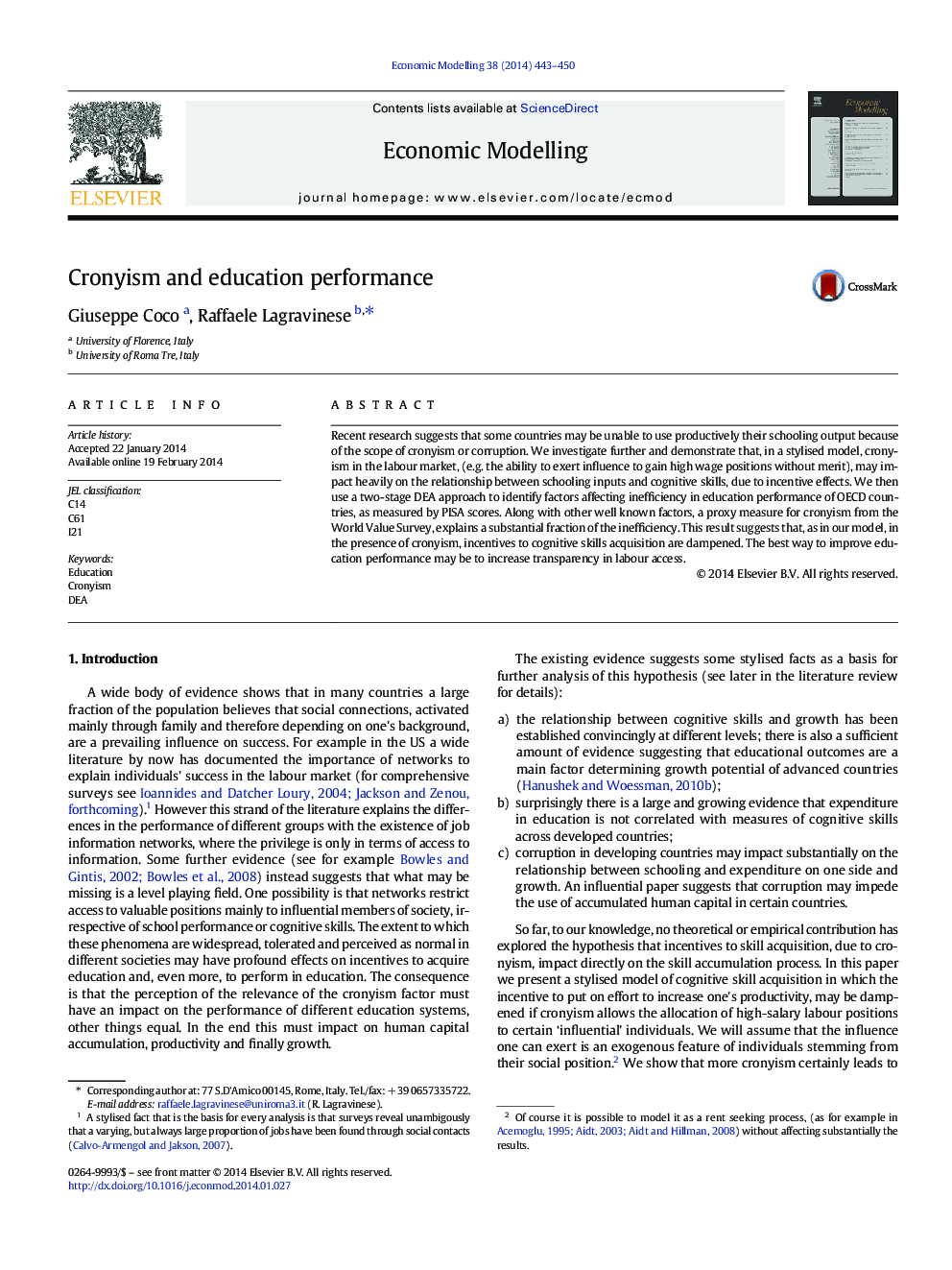| Article ID | Journal | Published Year | Pages | File Type |
|---|---|---|---|---|
| 5054395 | Economic Modelling | 2014 | 8 Pages |
Abstract
Recent research suggests that some countries may be unable to use productively their schooling output because of the scope of cronyism or corruption. We investigate further and demonstrate that, in a stylised model, cronyism in the labour market, (e.g. the ability to exert influence to gain high wage positions without merit), may impact heavily on the relationship between schooling inputs and cognitive skills, due to incentive effects. We then use a two-stage DEA approach to identify factors affecting inefficiency in education performance of OECD countries, as measured by PISA scores. Along with other well known factors, a proxy measure for cronyism from the World Value Survey, explains a substantial fraction of the inefficiency. This result suggests that, as in our model, in the presence of cronyism, incentives to cognitive skills acquisition are dampened. The best way to improve education performance may be to increase transparency in labour access.
Related Topics
Social Sciences and Humanities
Economics, Econometrics and Finance
Economics and Econometrics
Authors
Giuseppe Coco, Raffaele Lagravinese,
